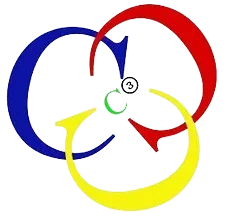Homeopathy has existed at the intersection of enthusiasm and doubt for years. While millions of individuals worldwide depend on homeopathic treatments for chronic and acute ailments, skeptics tend to ask: Is homeopathy scientifically proven? This controversy has piqued not only patients’ interest but also that of the medical profession. To get a real grasp of homeopathy’s role in contemporary medicine, it’s necessary to distinguish myths from realities and examine the scientific and clinical understanding that characterizes this age-old system of healing.
Through the work of Dr. Rashmi Chandwani and Ccube Homeopathy, patients see directly how homeopathy brings ancient wisdom and contemporary evidence together to provide gentle, long-term relief from many health complaints.
Getting Familiar with the Foundations of Homeopathy
Homeopathy, established by Dr. Samuel Hahnemann in the late 18th century, is developed on the principle of “like cures like.” It refers to the fact that a substance that can cause symptoms in a healthy individual can, in a highly diluted form, cure similar symptoms in an ill individual. Homeopathy treats the individual as a whole rather than merely addressing physical symptoms. Emotional and psychological factors are also taken into account.
Unlike conventional medicine, which tends to attack a particular disease or symptom, homeopathy tries to trigger the body’s self-healing process. At Ccube Homeopathy, Dr. Rashmi Chandwani adheres to this classical method — treating the cause of illness and re-establishing the harmony between body and mind.
Myth 1: “Homeopathy is Not Scientifically Proven”
Perhaps one of the biggest myths is that homeopathy has no scientific proof. The question that people ask is — Is there any evidence that homeopathy works?
Fact: Scientific Evidence and Clinical Studies Exist
Although the nature of homeopathic medicine — specifically its ultra-dilute concentrations — renders it difficult to quantify using conventional pharmacologic approaches, there have been a number of studies and clinical trials proving its efficacy in a range of conditions including allergies, migraines, arthritis, and dermatological diseases.
For instance:
Numerous peer-reviewed studies by The British Homeopathic Journal and Homeopathy (Elsevier) report favorable results in patients suffering from chronic illnesses treated with homeopathy.
Additionally, institutions such as the European Committee for Homeopathy (ECH) and Central Council for Research in Homeopathy (CCRH), India, regularly carry out scientific studies affirming the efficacy and safety of homeopathic medicines.
At Ccube Homeopathy, the same evidence-based model is adopted by Dr. Rashmi Chandwani, who combines clinical judgment and elaborate case analysis to customize each prescription. Her emphasis on patient-centered research and symptom-based assessment guarantees scientific accuracy in every treatment.
Myth 2: “Homeopathy Works as a Placebo”
The second common misconception is that homeopathic remedies contain no active ingredient and that all improvements witnessed are simply due to the placebo effect.
Fact: Actual Physiological and Clinical Changes Have Been Documented
While homeopathic remedies are very diluted, research employing nanotechnology has found that even in high potencies, nanoparticles of the original material are present. Such nanoparticles can interact at a cellular or bioenergetic level with the body and initiate a healing response.
At Ccube Homeopathy, patients repeatedly report measurable improvements — like reduction of inflammation, better lung function, hormonal equilibrium, and emotional equilibrium — proving that homeopathy does yield concrete, physiological effects. Furthermore, as Dr. Rashmi Chandwani frequently points out, “Homeopathy heals from within, not because of belief but because of restoration of biological balance.”
In homeopathic practice, the patients treated by her have experienced long-term relief from conditions such as asthma, PCOD, thyroid imbalance, and autoimmune diseases — much more than a placebo can provide.
Myth 3: “There’s No Restriction in Homeopathic Treatment”
A very popular query among patients is, Why is onion not allowed in homeopathy? This is based on the principle of remedy interference.
Fact: Certain Substances Can Antidote the Effects of Homeopathic Medicines
In homeopathy, some foods and substances — such as onion, coffee, camphor, and strong perfumes — are thought to neutralize or weaken the effect of homeopathic medicines. Eating onion right after taking a remedy might disrupt the medicine’s energy pattern, making the remedy less effective.
At Ccube Homeopathy, Dr. Rashmi Chandwani coaches all her patients on diet and lifestyle changes that complement the effect of their prescribed remedies. She describes that temporary avoidance of antidoting substances allows medicine to work best and facilitates quicker, deeper healing outcomes.
Myth 4: “Homeopathy Has a Low Success Rate”
Critics usually dispute the efficacy of homeopathy by raising, What is the success rate of homeopathy?
Fact: Excessive Success in Chronic and Lifestyle Disorders
The rate of success in homeopathy varies on several factors — the condition of the patient, length of illness, and personal sensitivity. Based on clinical statistics and observational accounts:
Homeopathy exhibits 70–80% success rates in treating chronic disorders like asthma, thyroid disease, PCOS, allergies, and arthritis.
For eczema, vitiligo, and irritable bowel syndrome (IBS), regular homeopathic treatment leads to gradual but sustained improvement.
Even in illnesses such as anxiety, insomnia, and migraines, homeopathy brings gentle and effective solutions with no side effects.
At Ccube Homeopathy, all this is a working reality on a daily basis. With the professional guidance of Dr. Rashmi Chandwani, patients not just heal from chronic illnesses but also regain energy, confidence, and an inner sense of wellness. Her careful case-taking and personalized remedies ensure that the causation of disease is corrected, resulting in long-term change.
Myth 5: “Homeopathy Is Slow to Act”
A common misconception is that homeopathy is slow to act.
Fact: Speed of Action Depends on the Nature of the Disease
In acute conditions such as fever, cough, or injury, homeopathic treatment can provide quick relief — even within hours or minutes. Conversely, chronic ailments that have accumulated over years might take some time, since homeopathy will heal the underlying cause and not just suppress the symptoms.
At Ccube Homeopathy, patients often report that acute conditions such as allergies, migraines, or respiratory infections improve significantly within a short time. For chronic illnesses, Dr. Rashmi Chandwani’s personalized treatment plans focus on gradual yet quick and permanent recovery, ensuring that relapses do not occur.
About Ccube Homeopathy
Ccube Homeopathy is a trusted name in holistic healthcare, dedicated to transforming lives through personalized and evidence-based homeopathic care. Founded and led by Dr. Rashmi Chandwani, the clinic blends scientific understanding with compassionate treatment, offering a wide range of solutions for chronic, recurring, and lifestyle-related conditions.
The philosophy of Ccube Homeopathy rests on three core “C”s — Care, Cure, and Comfort. Every patient receives individualized attention through detailed case-taking, in-depth analysis of symptoms, and a customized remedy plan that aligns with their emotional and physical constitution. Whether it’s asthma, PCOS, thyroid disorders, skin diseases, or autoimmune conditions, Ccube Homeopathy focuses on restoring the body’s natural balance rather than merely suppressing symptoms.
With its modern infrastructure, patient-friendly environment, and holistic outlook, Ccube Homeopathy continues to redefine wellness by combining traditional healing with scientific precision — helping patients achieve long-term recovery and improved quality of life.
The Role of Expert Homeopaths Like Dr. Rashmi Chandwani
Scientific knowledge of homeopathy continues to develop, but what really makes it work is the expertise and accuracy of the practitioner.
Dr. Rashmi Chandwani, a prominent homeopathic doctor at Ccube Homeopathy, marries evidence-based healthcare with empathetic care. Her specialization is to find the constitutional remedy that best matches a patient’s physical, mental, and psychological constitution. With extensive clinical practice and many successful patient recoveries, she has relieved countless people from chronic diseases that had defied mainstream treatments.
Her practice is the embodiment of scientific homeopathy — individualized, holistic, and based on observation, not theory.
Conclusion: The Science and Truth Behind Homeopathy
Is homeopathy scientifically proven?
Yes — although mechanisms will be different from traditional pharmacology, increasing volumes of research, clinical studies, and patient results confirm the effectiveness of homeopathy in strong numbers. It’s a medical science that heals with the body’s own intelligence, not against it.
In disentangling myths from reality, there is one truth that shines through: Homeopathy is not a belief system medicine; it’s an evidence-based, holistic system of healing. Practiced by trained clinicians such as Dr. Rashmi Chandwani of Ccube Homeopathy, it delivers safe, sustainable, and scientifically validated outcomes for many diseases.




